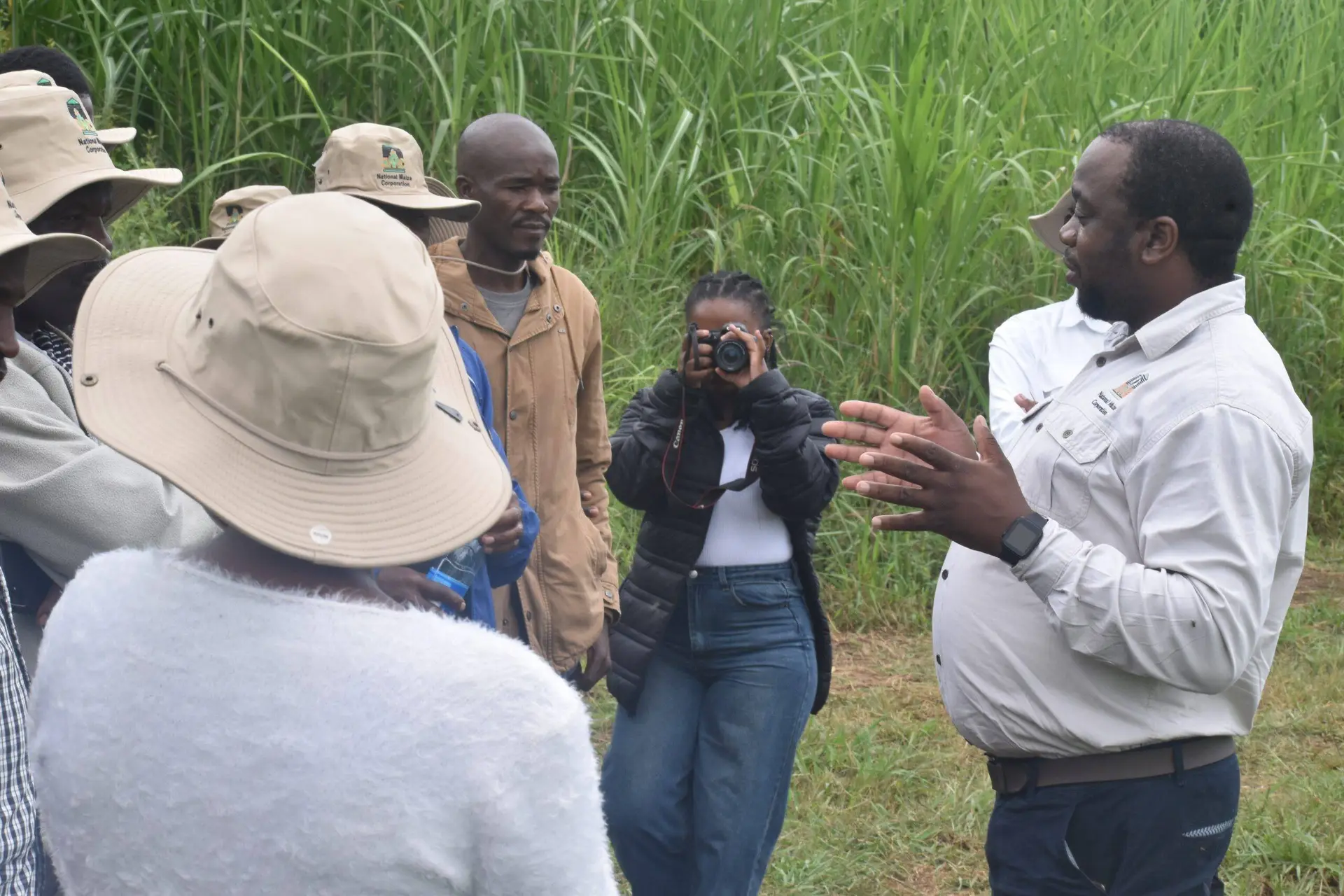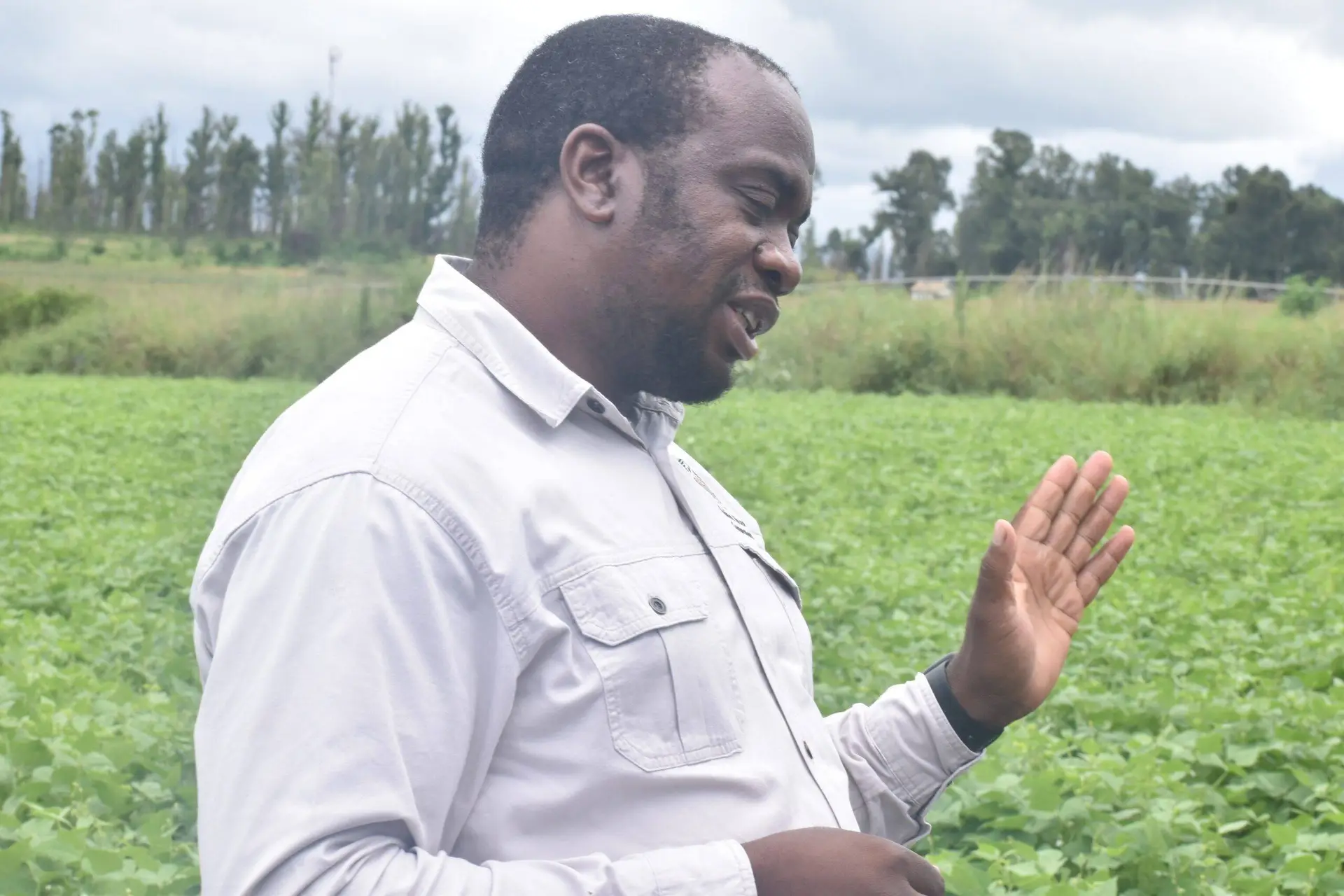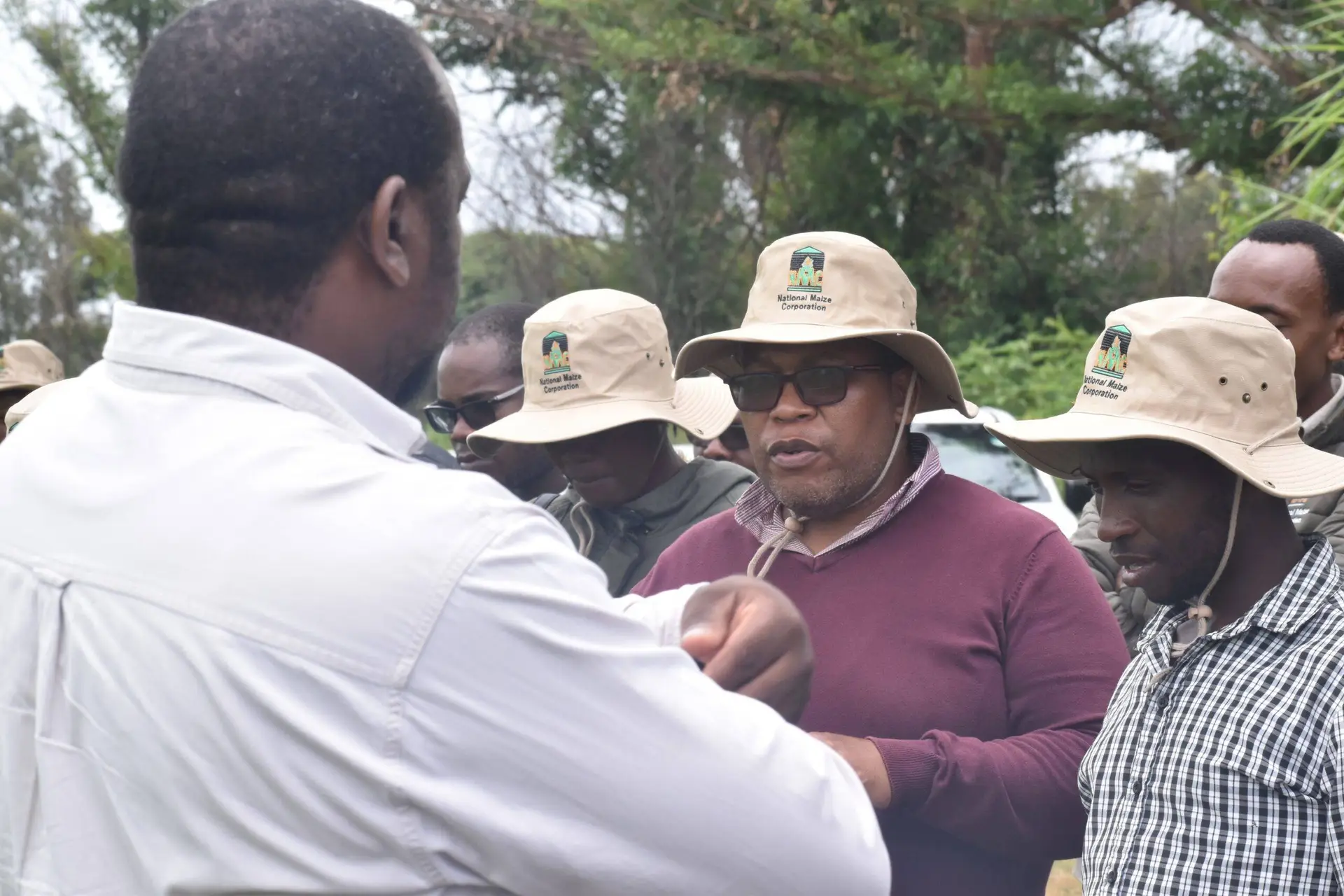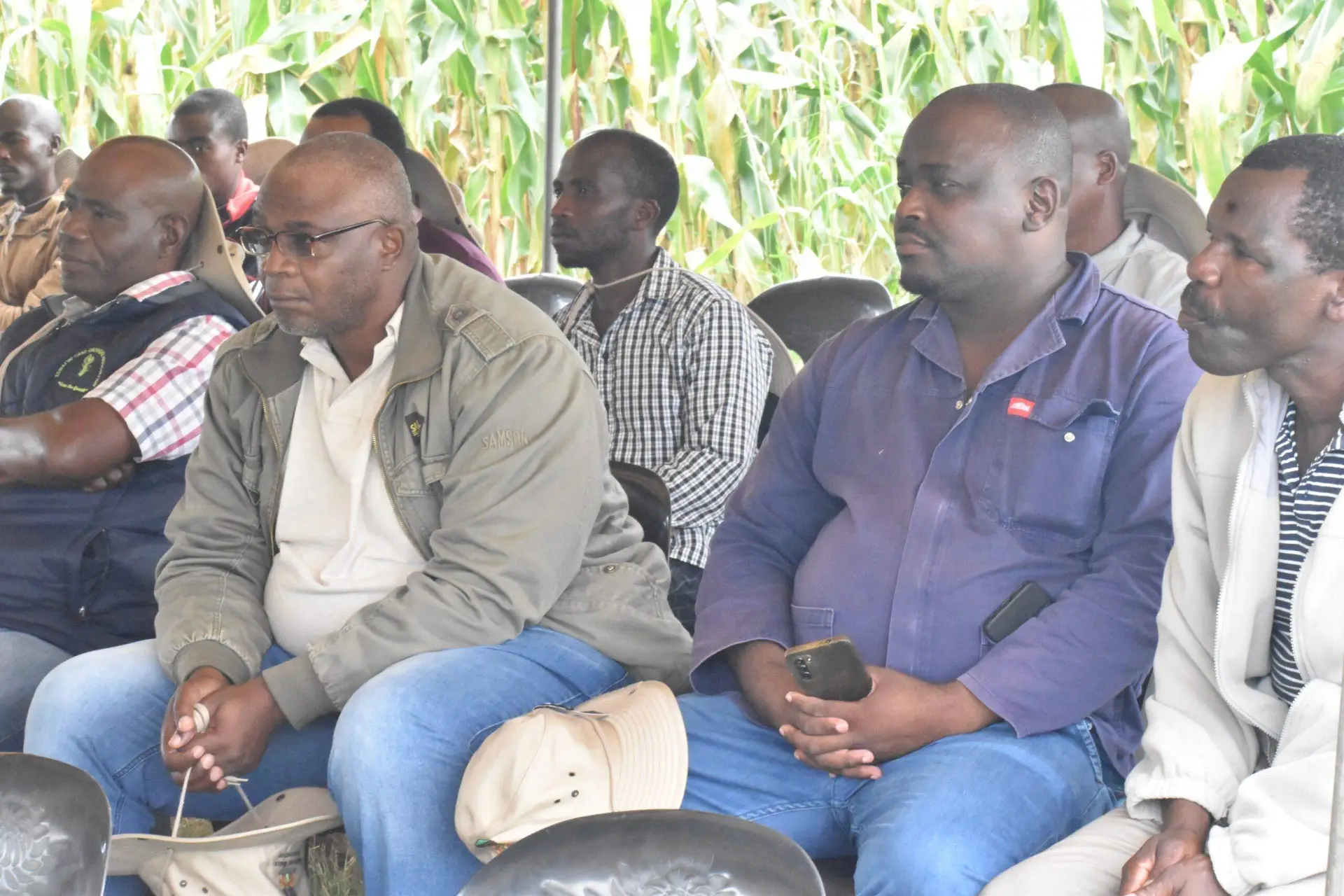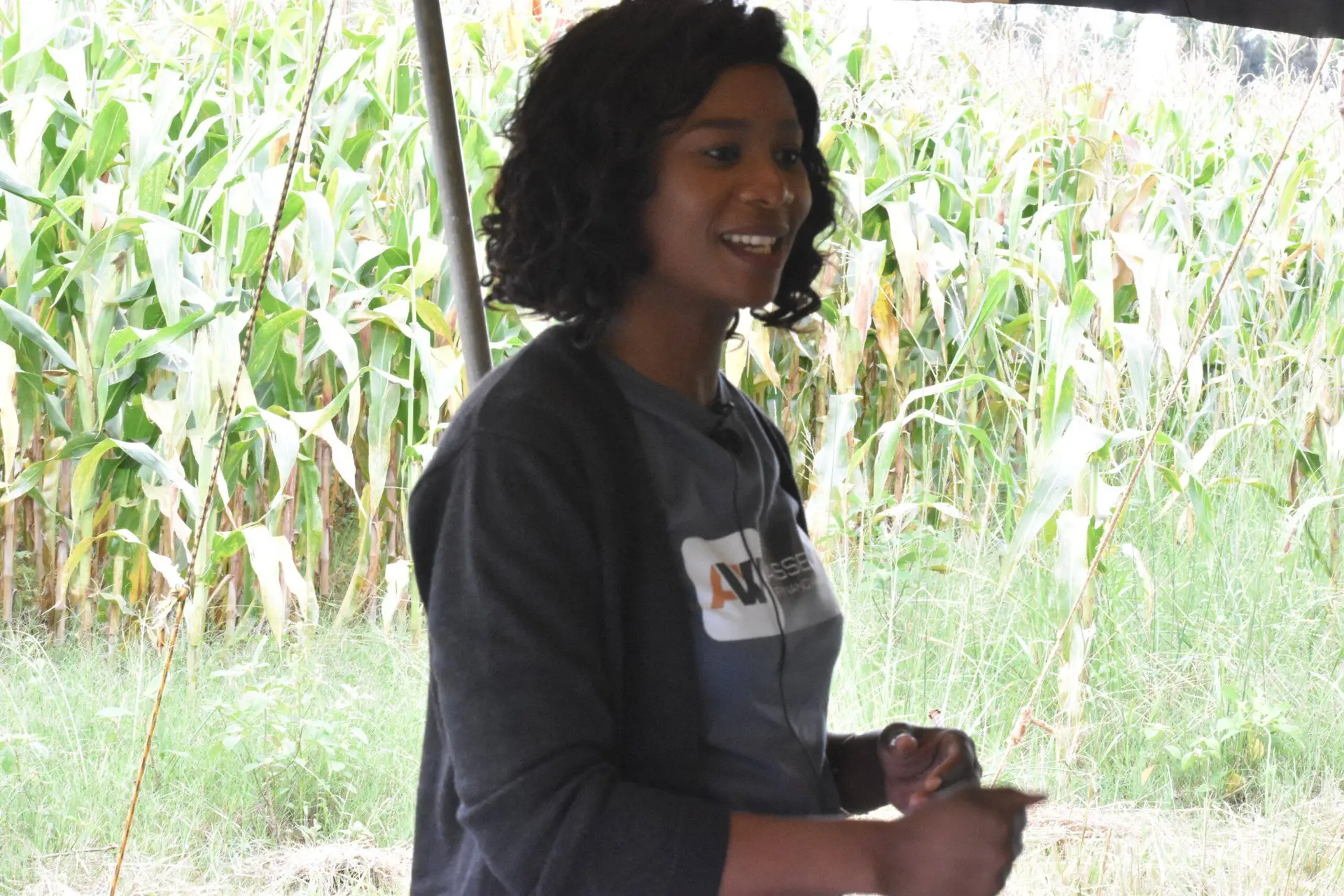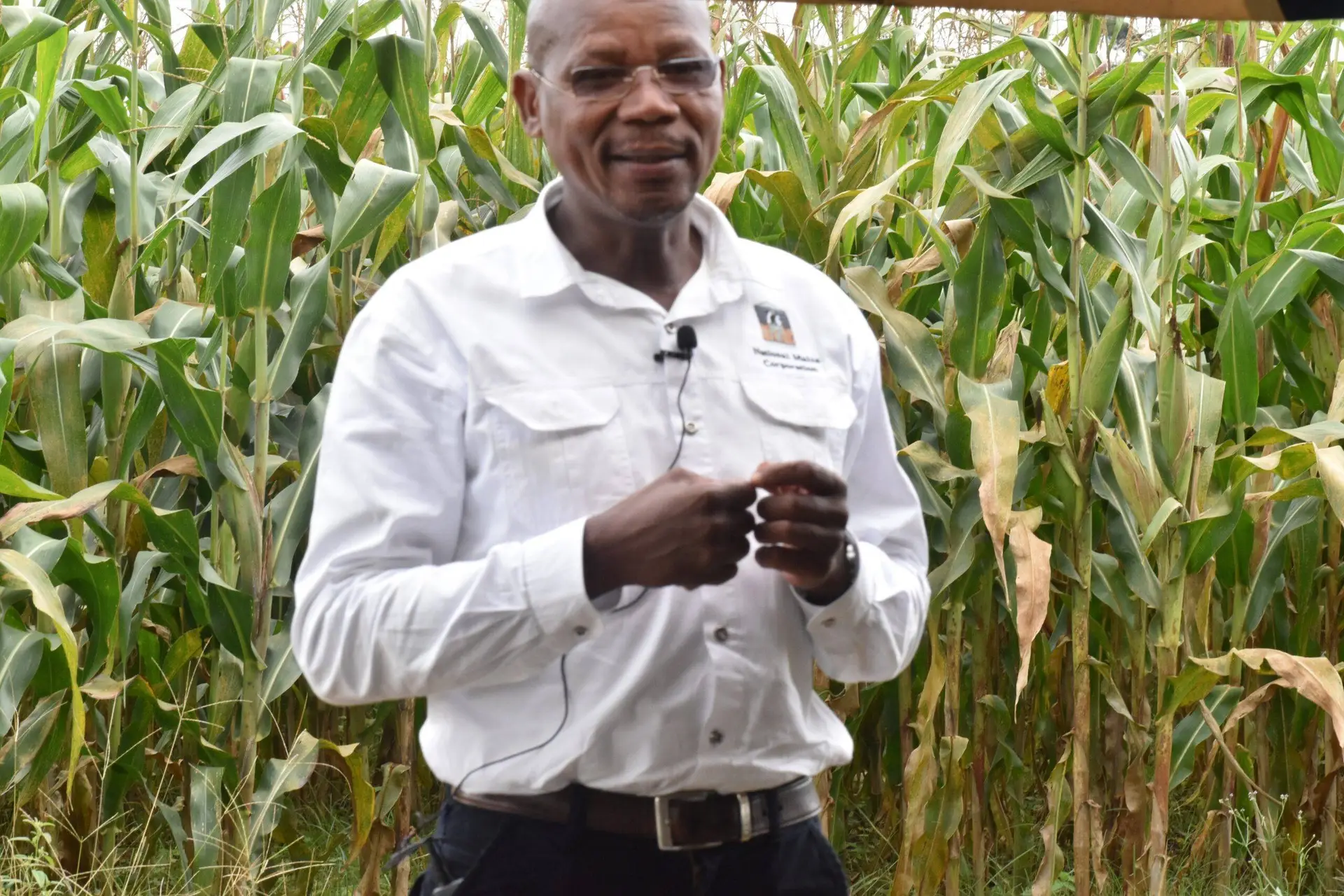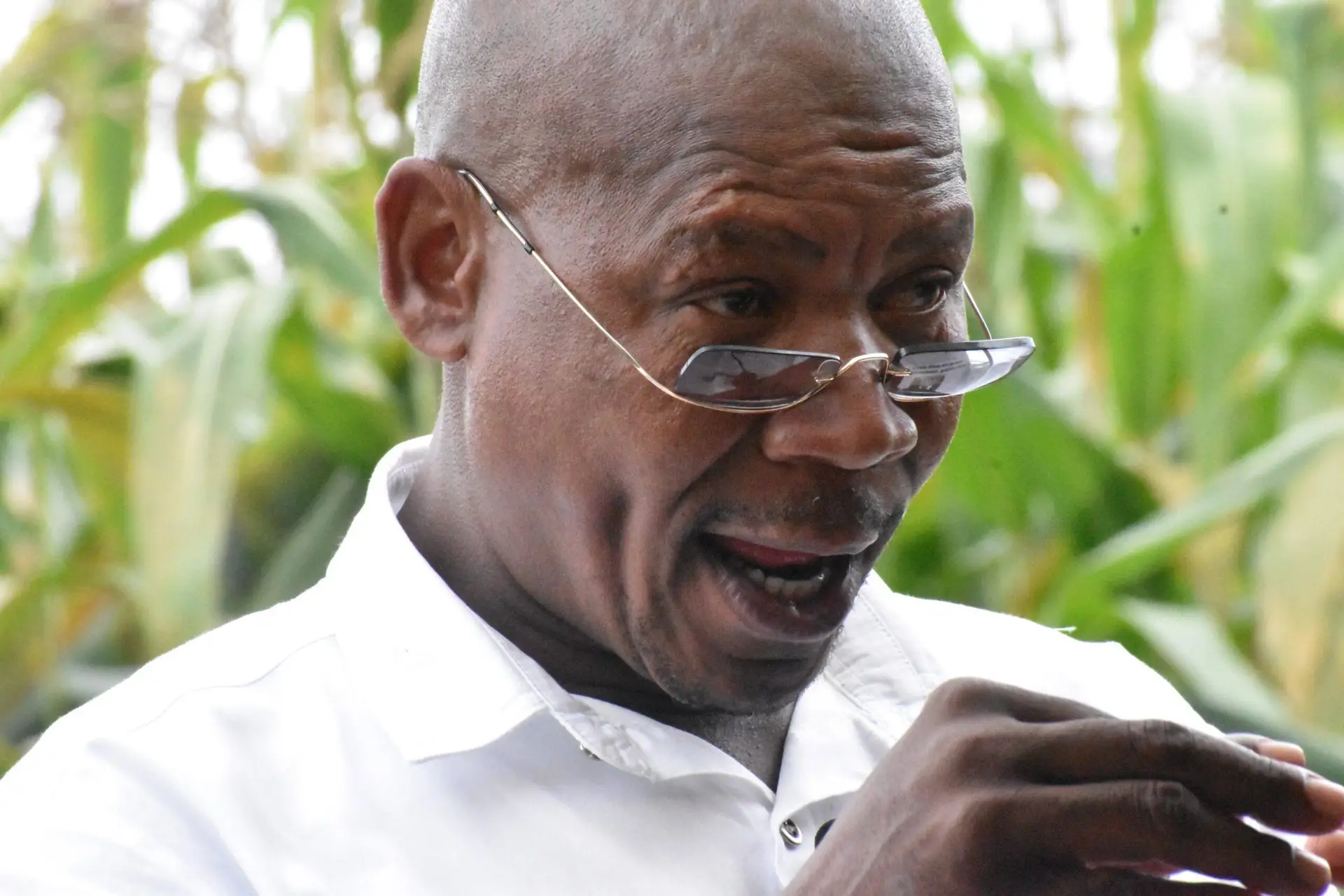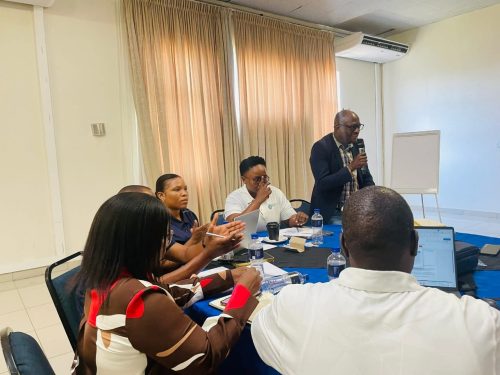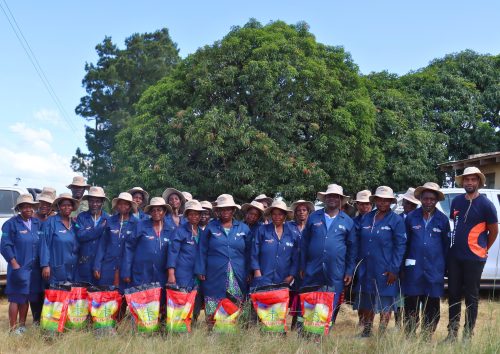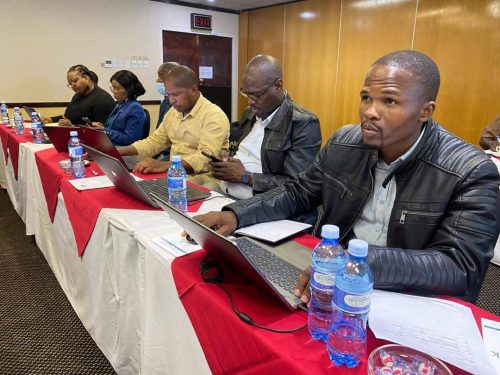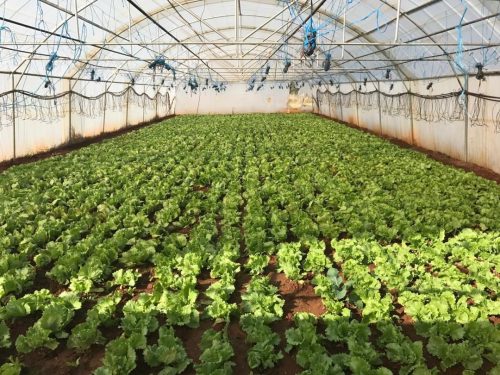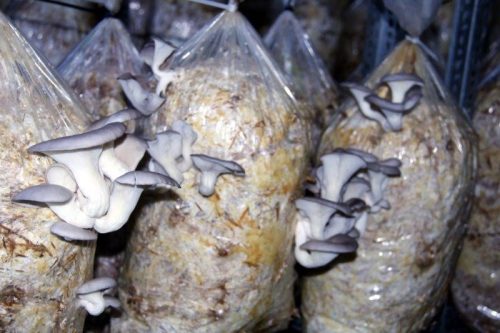BY SIBUSISO MNGADI
Malkerns, Eswatini (14 March 2025) – National Maize Corporation (NMC) CEO, Mavela Vilane, has warned that Eswatini would plunge into severe food shortages within just one week if borders were closed to food imports.
Speaking at a high-impact Farmers' Field Day hosted by NMC on a farm in Malkerns—attended by over 30 farmers from across Eswatini—Vilane painted a sober picture of the country’s fragile food security situation, stressing the urgent need to ramp up local maize and bean production immediately.
“Eswatini currently needs approximately 140,000 metric tons of maize and 7,000 metric tons of beans per year. Yet last year, we only produced 74,946 metric tons of maize and a mere 378 metric tons of beans,” Vilane revealed. “This situation is unsustainable. If our borders closed for just one week, Emaswati would literally face starvation. We must urgently shift towards full-scale commercial farming and end our dependency on imports.”
Held on land leased from the University of Eswatini, the event showcased best practices in commercial maize and bean farming. The farm itself is an example of commercial agriculture, with 40 hectares planted with maize and 10 hectares dedicated to beans.
Massive Potential to Transform Production
Vilane highlighted Eswatini’s enormous potential for agricultural productivity, pointing out that with correct practices, maize production could reach up to 432,000 metric tons annually—three times the current national requirement.
He also indicated that bean yields could potentially double from less than 1 metric ton per hectare to over 2 metric tons with improved farming practices.
Farmers Trained to Battle Food Crisis
Farmers attending the field day received hands-on training aimed at dramatically boosting yields. NMC’s technical experts, led by Farmer Development Officer Melusi Vilakati, demonstrated essential techniques, including soil testing, preparation methods, and effective weed and pest control.
The farmers acknowledged the urgent need for action.
“I now truly understand why soil testing and weed control matter," said Musa Bhembe, who farms two hectares in Sitsatsaweni on a leased Government farm. "If we don't get this right, our yields will not improve. We are truly appreciative of the knowledge gained today. We will definitely improve in the next farming season.”
Rudolph Mndzebele, Chairman of the Eswatini Grain Farmers Association, echoed the sentiment, applauding NMC’s proactive efforts and support to local farmers. "As farmers, we are now in a better position than before when we faced challenges such as lack of access to finance and proper equipment. Now we are sorted in all fronts. All we need to do is work hard and plant more fields and improve our farming practices to gain higher yields," he said.
Urgent Call to Commercialize Farming
Vilane emphasized that subsidies are meant strictly for subsistence farmers, warning commercial farmers against complacency or dependence on government assistance.
“We have to end this mentality of entitlement. Serious commercial farmers must invest in themselves and fully embrace commercial farming practices. That is the only path to national food security,” Vilane asserted.
“The threat of starvation is real. We cannot continue living on the edge. Let us immediately embrace knowledge, innovation, and a commercial mindset to achieve true food independence for Eswatini. Our survival depends on it.”
Strategic Partnerships and Financing Solutions
To ensure financing is no longer an obstacle, NMC has partnered strategically with financial institutions. Vilane reassured farmers that the financial barriers they once faced have been addressed.
“We've secured partnerships to unlock funding for farmers. The money is available. Now, it's up to the farmers to use this knowledge to improve productivity and avert a food crisis,” Vilane stressed.
Protecting Investments Through Insurance
Addressing additional risks, insurance expert Lerato Gumede from Asset Wide Financial Services urged farmers to insure their crops against climate disasters and other unforeseen events.
“The reality of climate change means that farmers who borrow money to invest in crops must protect their investments. Insurance isn't optional anymore—it's essential,” Gumede advised.




